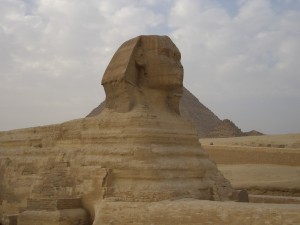
The beauty of our Social Media Revolution is that every one of us can become a publisher . . . and spread our opinions, insights, and wisdom.
Though we’ve only had two weeks of classwork for the online Social Media for Journalist course, several of the students have shown their passion, intelligence, and leadership in helping us all co-create the New Normal, i.e., the way to communicate, learn, interact, and act — Now, and in the Future.
One of the outstanding students has been Suzzanna Matthews, who grew up in Boston and studied English Lit at Goldsmith’s College in the UK and at Mills College in Oakland. She currently resides in Oakland and is studying Journalism and Social Media. Here are her thoughts on the explosive situation in the MidEast and the role of social media.
The Internet Shutdown in Egypt:
How the Definition of News is Changing
GUEST POST by Suzzanna Matthews
On January 27th, 2011 – after days of disruptions in internet service, most internet connections went down in Egypt. This shutdown targeted social networking sites Facebook and Twitter. This was an unprecedented event in history, a country in protest and a government shutdown of all major social media communications.
Why? Because, social media sites are viewed as dangerous. These sites were being used as a primary means of communication to rally people to protest. News of these protests was able to reach thousands of people at the stroke of a key.
If an entire country’s government has such a great fear of what social media can do. then you have to concur that it is indeed powerful.
SPEECH is powerful, and these social media platforms are important in letting people’s voices be heard uncensored.
In various articles I have read about the situation, journalists are reporting that there was and is misinformation being reported about the protests via Twitter and Facebook, but that there is also much more information available to them — and many more leads that they are able to follow up on because of Tweets and Posts. Particularly information coming out of locations that maybe unsafe for foreign journalist travel.
The social media platforms also allow us to read the news from Egyptians living in the midst of the turmoil and to get a sense of what is actually occurring without perhaps a government veil or ‘toned down’ diplomatic version of the events.You can see why it would behoove a government with waning power to halt these types of communications that they may view as damaging and, yes, dangerous.
Even with the shutdown, the people’s voices still found a way to be heard on the web with google’s Speak2Tweet. News of what is happening is being reported by the people — most are not trained journalists and many are just expressing their frustration.
- Are the voices of Egyptian Tweeters and bloggers less newsworthy as they are not professional journalists?
- Does the misinformation being reported via social networking sites outweigh the viable information?
- There is no question that the way news is being related has changed, but as we move away from traditional forms of reporting, how do we need to re-think what ‘news’ actually is?